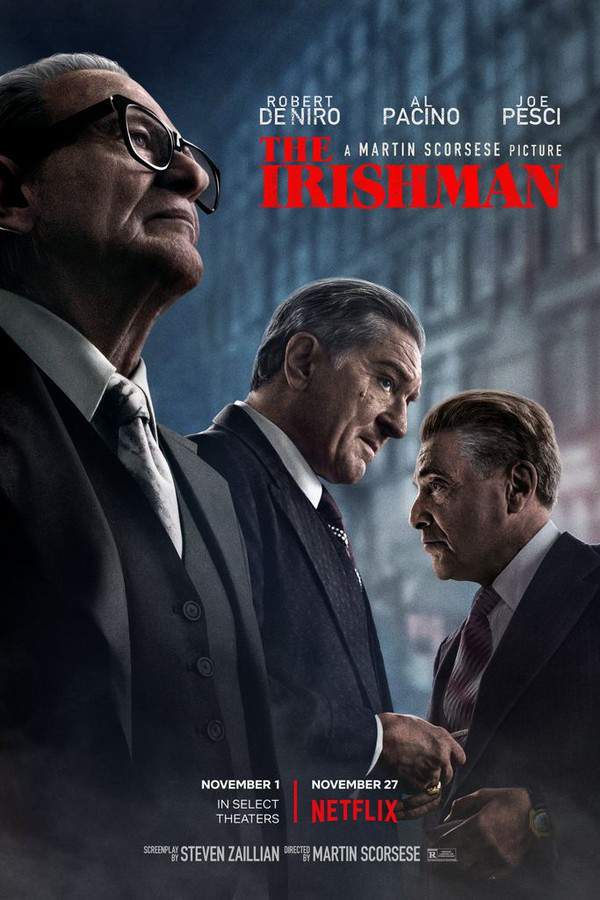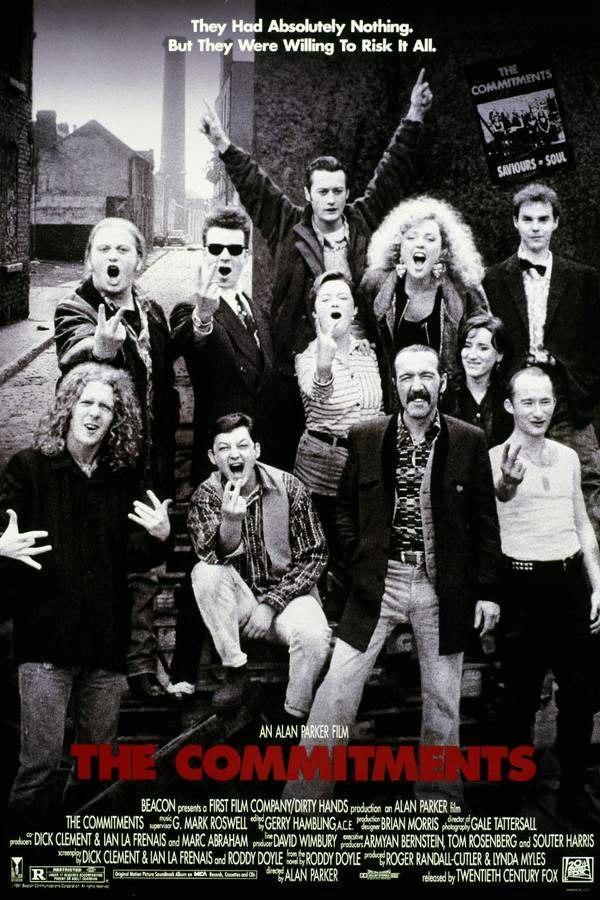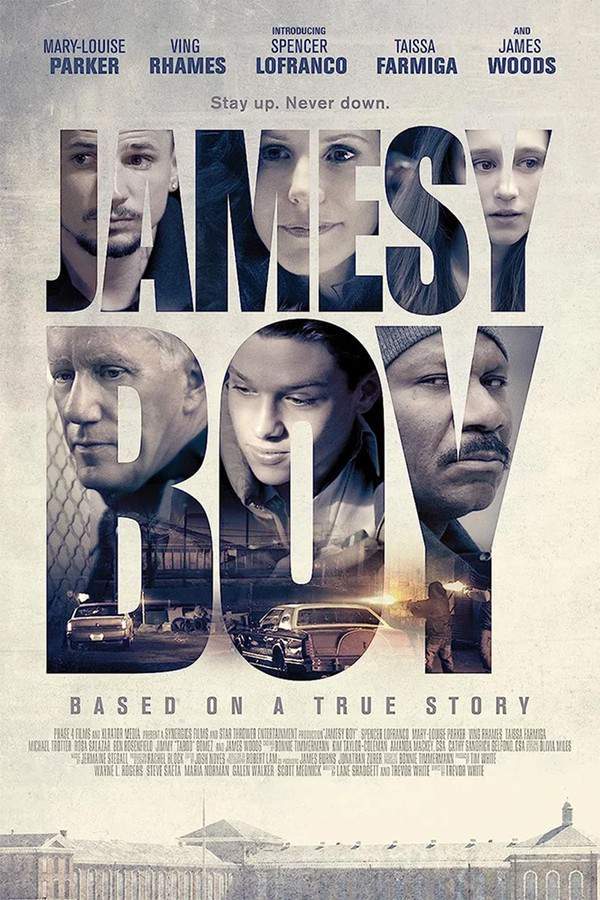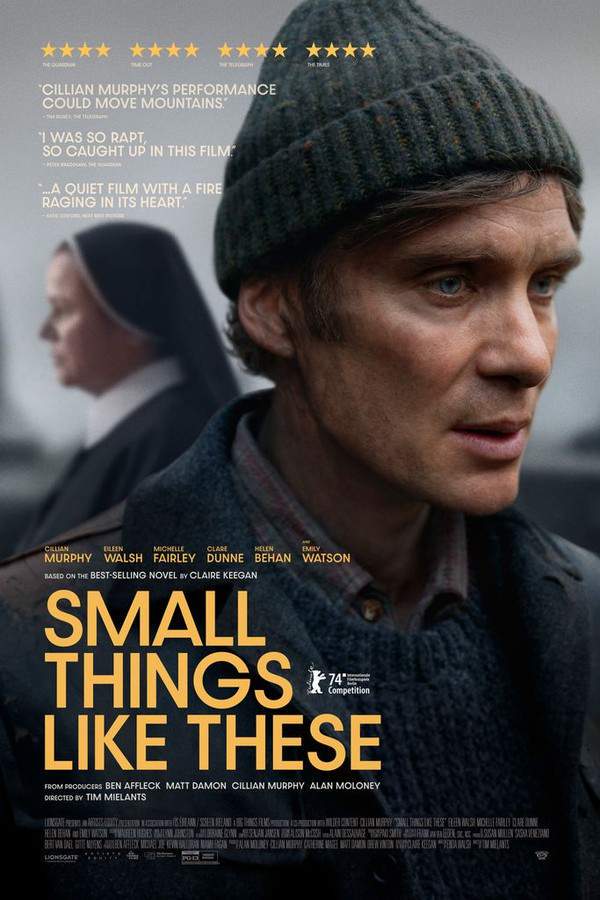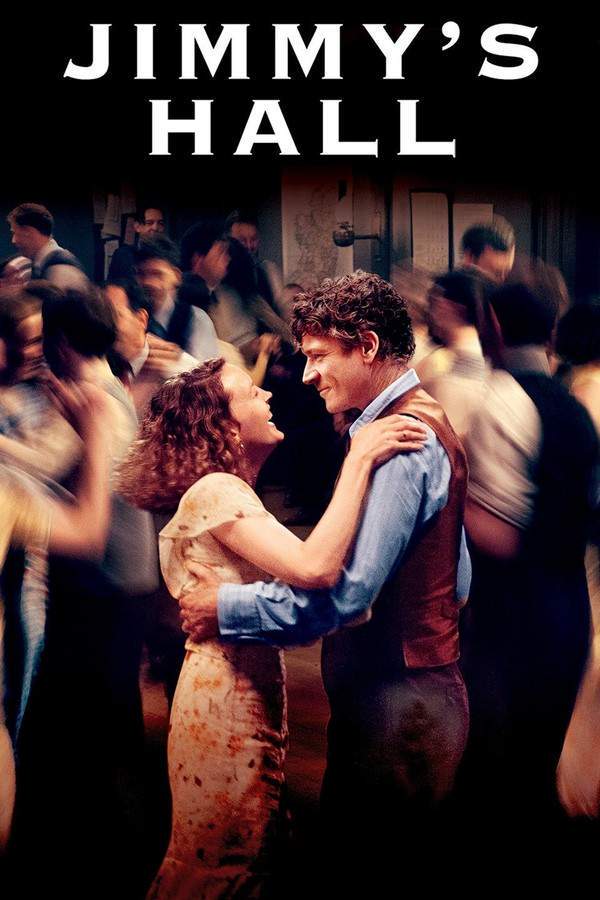
Jimmy's Hall 2015
Directed by

Ken Loach
Made by

Sony Pictures Classics
Test your knowledge of Jimmy's Hall with our quiz!
Jimmy's Hall Plot Summary
Read the complete plot summary and ending explained for Jimmy's Hall (2015). From turning points to emotional moments, uncover what really happened and why it matters.
In 1932, after spending a decade in the United States, Jimmy Gralton makes his way back to his hometown in Ireland to assist his mother in managing the family farm. This return coincides with a new government taking power, a decade after the conclusion of the Irish Civil War. Inspired by his time in America, Jimmy decides to revive a community center where the youth can freely come together to dance, learn, and engage in conversation, influenced by the jazz culture he experienced abroad.
As the community hall begins to thrive, it faces backlash from various factions in the town, particularly from the Church represented by Father Sheridan, who condemns the lively music and dancing as immoral and scandalous. Despite the adversities, Jimmy and his sympathetic mother, who shares a leaning towards Communism, strive to help a family facing eviction from their home.
Jimmy’s growing activism soon draws the attention of the Gardaí, setting off a series of events that leads to his deportation from Ireland under charges of sedition. Holding an American passport, he is sent back to the States, much to the dismay of his supporters. During a rally against his expulsion, Jimmy’s mother passionately criticizes the absence of a fair trial, reminding the crowd that he was indeed “the first and only Irish person in history to ever be deported from Ireland.” Through the tumultuous journey of Jimmy’s return to Ireland, we see a poignant exploration of music, community, and the struggles against oppressive forces.
Jimmy's Hall Timeline
Follow the complete movie timeline of Jimmy's Hall (2015) with every major event in chronological order. Great for understanding complex plots and story progression.
Jimmy's Return to Ireland
In 1932, Jimmy Gralton makes his way back to Ireland after spending a decade in the United States. His return is motivated by a desire to assist his mother in managing their family farm, marking the beginning of his journey in his hometown.
Political Changes
Jimmy’s return coincides with a new government taking power, a pivotal moment a decade after the Irish Civil War's conclusion. This change in governance sets the stage for the unfolding community dynamics and Jimmy's activism.
Reviving the Community Center
Inspired by jazz culture from America, Jimmy decides to revive a local community center. He envisions it as a space for youth to dance, learn, and engage, fostering a sense of community that had been lost.
Community Flourishes
As the community hall begins to thrive, it becomes a gathering place for locals to enjoy music and connection. This success, however, attracts the ire of several factions within the town, leading to societal tensions.
Opposition from the Church
Father Sheridan and the Church express strong opposition to Jimmy's community center. They label the music and dancing as immoral, creating a conflict between traditional values and the new cultural vibrancy introduced by Jimmy.
Support for Evicted Family
Amidst growing tensions, Jimmy and his mother step in to help a local family facing eviction. This act of solidarity highlights the socioeconomic struggles in their community and showcases Jimmy’s commitment to social justice.
Growing Activism
As Jimmy's activism grows, it begins to draw unwanted attention from the Gardaí. His efforts to create a safe haven for the community becomes a point of contention that places him in direct conflict with authorities.
Deportation Orders Issued
In a dramatic turn, Jimmy receives deportation orders under charges of sedition. This marked a severe escalation of tensions and a personal blow to Jimmy, as he must now confront the loss of his new community.
Return to the United States
Holding an American passport, Jimmy is forcibly sent back to the United States. This time away from his home and community is filled with uncertainty and disappointment for both him and his supporters.
Mother's Rally Against Expulsion
During a rally organized against Jimmy's expulsion, his mother passionately addresses the crowd. She condemns the lack of a fair trial for Jimmy, emphasizing the historical significance of his deportation.
Community's Reaction
The community rallies together in support of Jimmy, demonstrating the bond they have formed through the community center. This moment illustrates the deep impact he made in a short time and the collective resilience of the residents.
Legacy of Community and Music
In the end, Jimmy's actions leave a lasting legacy in the town, showcasing the power of music and togetherness. His story reflects broader themes of activism and the fight against oppressive forces in society.
Jimmy's Hall Characters
Explore all characters from Jimmy's Hall (2015). Get detailed profiles with their roles, arcs, and key relationships explained.
Jimmy Gralton (Barry Ward)
Jimmy is a passionate and idealistic man who seeks to bring change to his hometown upon his return from America. His experiences abroad have shaped his vision of community and freedom, but they also provoke fierce opposition from local authorities. Jimmy's unwavering dedication to his beliefs ultimately leads him to become a symbol of resistance.
Father Sheridan (Francis Magee)
Father Sheridan represents the conservative forces in the community that oppose Jimmy's progressive ideas. His condemnation of the community hall's activities highlights the tension between traditional values and modern expressions of freedom. As a key antagonist, he embodies the struggles between faith, morality, and community dynamics.
Jimmy's Hall Settings
Learn where and when Jimmy's Hall (2015) takes place. Explore the film’s settings, era, and how they shape the narrative.
Time period
1932
The story unfolds in the wake of the Irish Civil War, a period marked by political turmoil and shifting social dynamics. The early 1930s in Ireland were characterized by a struggle for identity and community amidst economic hardship. This time also saw growing dissatisfaction with traditional institutions, laying the groundwork for the tensions depicted in the film.
Location
Ireland, United States
The movie primarily takes place in rural Ireland, where Jimmy returns to help his mother with their family farm. The community hall he seeks to revive symbolizes a place of cultural expression and freedom, contrasting with the conservative pressures from the Church. Scenes also unfold in the United States, emphasizing Jimmy's experiences with jazz culture that fuel his vision for the hall.
Jimmy's Hall Themes
Discover the main themes in Jimmy's Hall (2015). Analyze the deeper meanings, emotional layers, and social commentary behind the film.
🎶
Community & Music
Music serves as a unifying force in Jimmy's Hall, representing both joy and resistance against oppressive societal norms. The community's engagement in dance and conversation reflects a yearning for connection and freedom of expression. Through music, the film highlights the importance of community in confronting adversity.
🌍
Exile & Activism
Jimmy's journey is deeply intertwined with themes of exile and activism, as he faces deportation for his beliefs. His activism serves as a catalyst for others to question authority and fight for their rights. The struggle against oppression is a central pillar of the narrative, showcasing the sacrifices made for the sake of community and identity.

Coming soon on iOS and Android
The Plot Explained Mobile App
From blockbusters to hidden gems — dive into movie stories anytime, anywhere. Save your favorites, discover plots faster, and never miss a twist again.
Sign up to be the first to know when we launch. Your email stays private — always.
Jimmy's Hall Spoiler-Free Summary
Discover the spoiler-free summary of Jimmy's Hall (2015). Get a concise overview without any spoilers.
In the early 1930s a restless Irish village finds itself caught between the lingering shadows of a civil war and the gentle promise of a new, restless world. Against this backdrop, a modest farmstead stands as the quiet home of a young man who has spent a decade abroad, returning with fresh ideas and a yearning to give his community something to hold onto. The rural landscape, with its rolling fields and tight‑knit cottages, feels both timeless and on the brink of change, its daily rhythm punctuated by the whispers of music and conversation that drift from an old, empty barn.
Jimmy Gralton arrives with an American passport and a heart full of jazz‑infused optimism, determined to breathe life back into the long‑abandoned Pearse‑Connolly Hall. The idea is simple yet powerful: a space where youths can dance, learn, and speak freely—a sanctuary of movement and thought that mirrors the lively clubs he remembers across the ocean. As he gathers neighbors and friends, the hall becomes a modest hearth of camaraderie, its walls echoing with laughter, folk steps, and the tentative beats of a new cultural pulse that hints at broader possibilities.
Yet the village is not without its own guardians of tradition. Father Sheridan, the local priest, watches the revival with a wary eye, his sermons reminding the faithful of long‑held moral codes. The tension between the hall’s exuberant spirit and the town’s more conservative expectations creates an undercurrent of unease, framing the story in a tone that balances hopeful defiance with quiet resistance. Within this delicate dance of aspirations and authority, the film invites viewers to feel the weight of history, the sparkle of music, and the stubborn belief that even the humblest gathering place can become a beacon of change.
Can’t find your movie? Request a summary here.
Movies with Similar Twists and Themes
Uncover films that echo the narrative beats, emotional arcs, or dramatic twists of the one you're exploring. These recommendations are handpicked based on story depth, thematic resonance, and spoiler-worthy moments — perfect for fans who crave more of the same intrigue.
Featured on this page

What's After the Movie?
Not sure whether to stay after the credits? Find out!
Explore Our Movie Platform
New Movie Releases (2026)
Famous Movie Actors
Top Film Production Studios
Movie Plot Summaries & Endings
Major Movie Awards & Winners
Best Concert Films & Music Documentaries
Movie Collections and Curated Lists
© 2026 What's After the Movie. All rights reserved.


